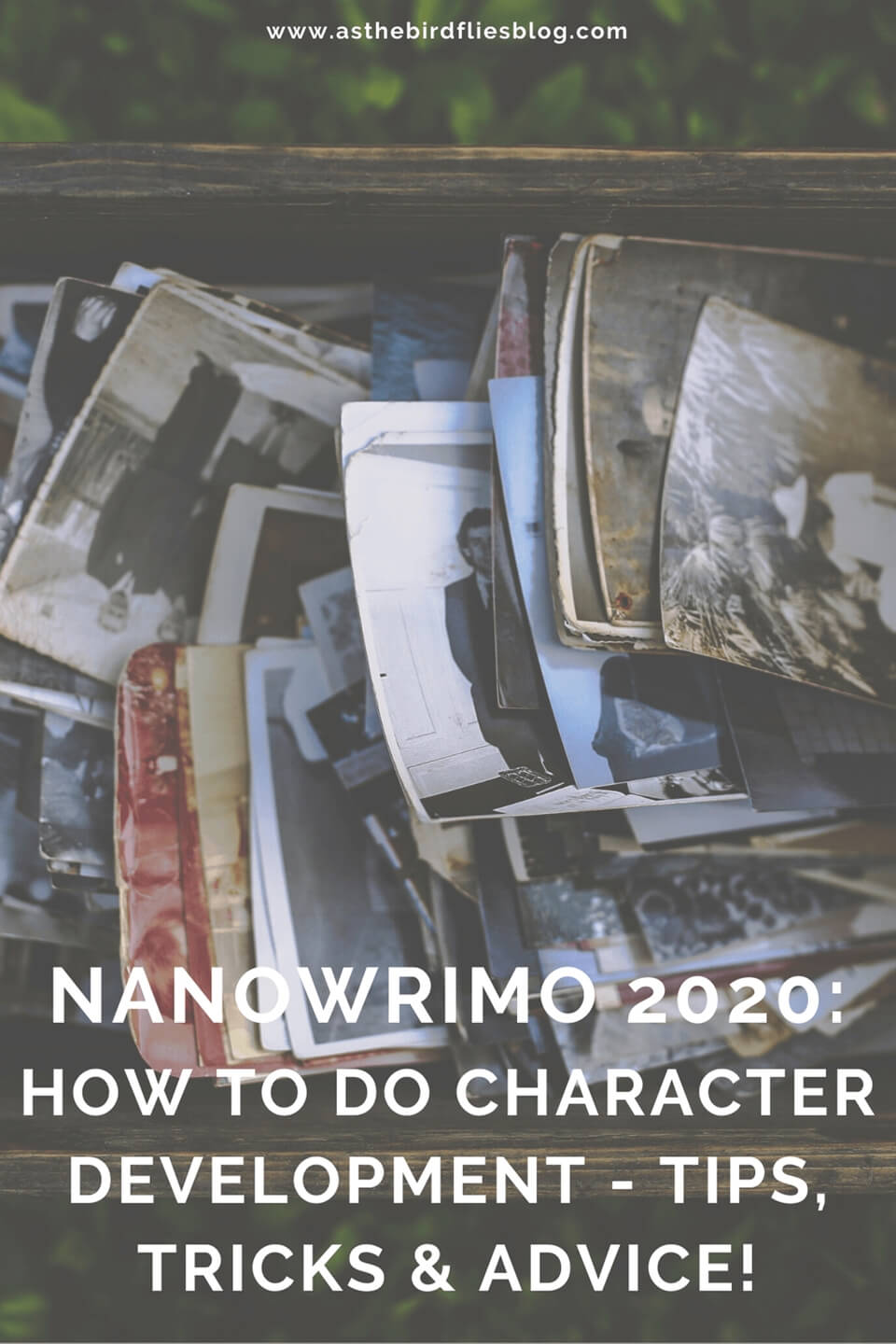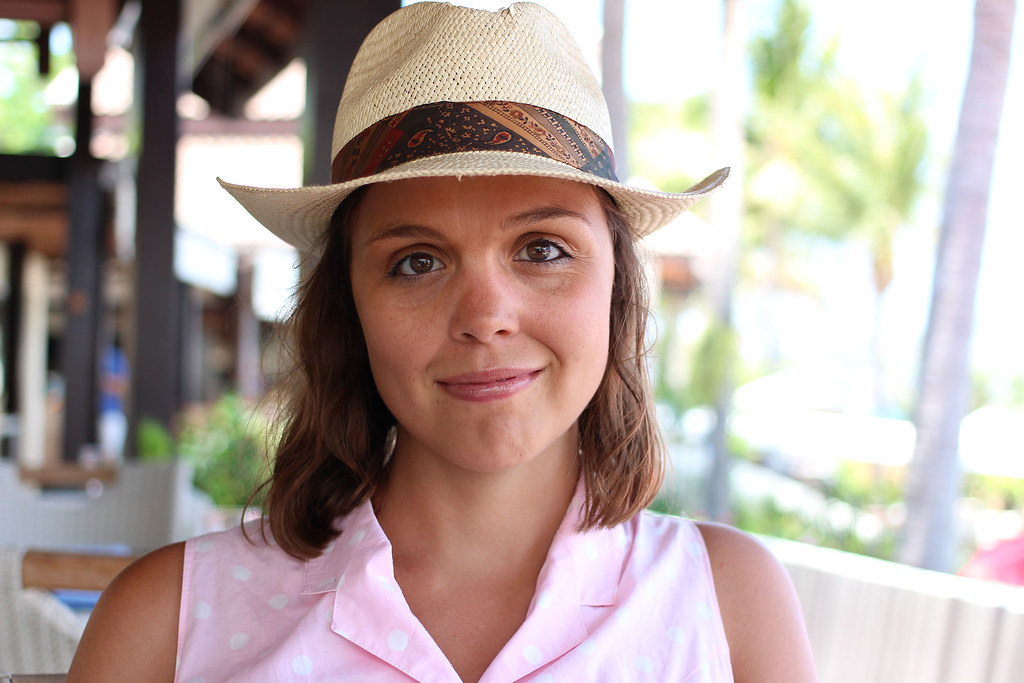Character development was a very unexpected but important and helpful step in planning the novel I'm currently working on.
If I'm honest, I haven't really done much in-depth character development before and wasn't going to do it for this novel, primarily because I already had a strong sense of who my main character was (after spending
such a long time doing story development) and I also quite enjoy discovering more about them as I write the (many!) drafts of the story. At least this was my previous experience when I wrote
my short stories.
However, this is not a short story, and
as I have written in this post, I have struggled a lot with writing novels in the past, in large part because I think I went into writing the first (and second and maybe even third draft) under-prepared and with too many plot holes left wide open.
Some of these plot holes definitely related to a character's background, or lack thereof, and/or they have emerged because of a lack of consistency in my understanding of exactly who a character is, what their motives are, and having a fully formed picture of their personality and even physical description. I also didn't have a detailed point of reference to check things about a character before writing the first draft.
For example, in one draft I wrote for a novel, the main female character started out with blue eyes but later on in the story they were greeny-brown. This is a minor example that can of course be easily edited and changed, but when the inconsistent details about a character refer to more significant events in their past, or to the way they speak, or to their relationships with other characters then you do have a bigger problem.
Also, trust me when I say that when it comes to editing, the less you need to do at this stage the better!
What is Character Development?
Character development is the development of one or more of the characters in a work of fiction you're writing so they become more fleshed out, more real, more familiar to both you and a reader.
Character development aims to help you as a writer feel more confident in writing about that character and letting them tell their story. Character development will also give you a point of reference for that character so you can easily look up certain pieces of information about the character that you may have forgotten or need to check. (Of course, you can add to this document too as you write more.)
That is the obvious advantage of doing character development early on either before writing a first draft or maybe during or after that is written as I know from previous experience that doing more in-depth character development at a later stage may risk you changing A LOT of your story (most likely for he better, and I strongly believe that writing a book takes whatever journey it has to) but I live in hope that I can learn the best way to save time and effort; that's sort of what documenting this whole How to Write a Book journey is all about!
How Do You Do Character Development?
So, what does character development look like? How do you actually set about "doing it"? From both my recent and past previous experience, as well as a little bit of research into the topic, I've found one of the most popular ways to do character development is to answer a list of questions about a character, sort of like filling in a questionnaire about a person.
The questions in such a character questionnaire can relate to physical appearance, their essential information (date of birth, name, address) and other factual information, as well as then gathering information about other facets of their personality (likes/dislikes, political or spiritual affiliations, opinions etc) family and relationships, and background (childhood, education, work history, major events etc).
Of course there are many more topics that you can ask and answer questions about a character, and when you do, I definitely think it's worth really focusing on the themes that are relevant in your story.
It should also go without saying that answering questions isn't the only way you can develop a character. You can just write a list of notes about the character as they come to you. You can do this as a quick brainstorm, or you can even write a mini profile or overview of your character's story.
All this being said, I don't believe you have to spend a lot of time on character development, at least not at the beginning, As I've mentioned before, I still believe you can develop a character as you write the first few drafts of your book; that's certainly how I've done it previously.
In fact, depending on what kind of book you're writing, the journey of a character, and how much you find out and reveal about them, could actually be the crux of the story itself so don't think you have to know everything about your character from their inside leg measurement to what kind of cereal they eat for breakfast - this may mean you reveal too much or overthink things too much when you write a first draft. I think it's also fair to say that writers will vary wildly in how much they want to know about their character and how much character development so feel comfortable in whatever you feel is appropriate.
Character development can also be a very short but effective exercise that uses very different materials - i.e. not questions at all!
One of the best ways I've seen and heard other authors doing this is with images, and I've had some good experience of this myself. I know lots of authors like to find images of people they see as being what their characters look like and so they always have a consistent idea of what a character's appearance is. I have done this in the past, even for minor characters and it's really helpful to have a quick reference point.
I like to use Pinterest boards to organise these images, but you can dump images into Evernote or even straight into Scrivener if you are using that to write your book. You can also collate images of certain styles or things - clothes, interiors, hair, cars, whatever! - that your character would be into. You can use images to basically create the world that they move around in, from the house they live in through to what activities they would do with their friends or where they would go on holiday. If you respond well to images and visual stimuli more than brainstorming or making notes that I highly recommend you try this for character development.
Why I Choose to do Character Development
As I also got ready to write the first draft of this novel, I felt ready and confident and eager (as I wrote in
my previous post in this How to Write a Book series) but I also felt the fear, and it primarily related to the character I was writing about. I felt I knew her but I also felt like I wanted to get to know her better.
Specifically, I was already worrying she wasn't very likeable for readers and this wasn't what I wanted to feel. I wanted to know about her strengths and weaknesses so I could like her as well as feel interested by her. It's true that liking a character (as a reader or a writer) is not a pre-requisite but to put it another way, I felt overwhelmingly like the character would come across as a bit of a bitch because of the plot (as mapped out in
my book outline) would make her look like one, or at best, like she didn't care about things that I want her to care about, albeit it in a complicated, multi-layered way.
I'm probably not making much sense as I'm not giving specific examples, but needless to say the approach I took to this was to dig deeper into my character's personality, and background, and motives, by doing some character development and to then create a document that I could refer to again and again that would help me keep a consistent portrayal of my main character (and hopefully avoid some editing nightmares later!)
What I Did For Character Development for My Novel...
Because my book focuses primarily on one woman's story, I only did character development for her as the main character (MC), though in answering many of the questions about her history and personality and relationship, lots of information came up relating to other main characters, especially those closest to her. I now have a better idea of what these people are like, what their backgrounds are and how they differ in personality or character to the MC. I have highlighted these notes in different colours (per character) so if I want to go back and collate these details and add more to them I can.
As I began answering questions about my character I quickly learned that there are really two types of character development question; one kind aims to collate factual or immovable information about your character (e.g. their name, their age, their appearance, events in their background) while the second kind of questions is more about how they feel or think about said fact or information (e.g. Do they like their name? How much do they care about their appearance? How have events in their background affected them?).
Obviously, the answers to many of the first kind of question can be short and precise (though not all!) but answers to the second type of question can be as long and as detailed as you want. I found I had to be in quite different moods to answer these two different types of questions, so don't be surprised if you find it hard to describe their physical appearance one minute and then jump to writing about the emotional impact of an event in their childhood.
In an attempt to be really honest and transparent about my experience of character development, I also found it interesting to see how helpful and also unhelpful the second kind of question was.
Yes, I was building a deeper profile of my character's emotional, spiritual and philosophical make-up, but I was also falling into several unexpected or useful rabbit holes thinking about more things than perhaps I need to at this stage. I've learned the hard way with previous drafts of novels that you can easily make a plot (or character!) too complicated and this then results in the author (me!!) getting tied up in knots when things don't add up.
For this reason, when I found myself touching on a question or topic that I felt tempted to explore but was reluctant to do so at the risk of not exactly wasting time, but certainly over-complicating things, I just made a few notes - maybe a sentence or two - and then I added a comment like "TO THINK ABOUT" or "TO EXPLORE MORE" or I would simply brain dump my ideas and then add SEVERAL question marks.
This would also then help later me to recognise that this particularly information wasn't set in stone and so shouldn't be referred to as "gospel" when consulting my character reference notes which the answers to the character development questions essentially were. We shall see if I do actually go back to these points and explore them more; doing so could be very interesting and could open the story up more but right now is not the time.
In addition to answering the majority (but certainly not all!) of
the questions on the list I collated I also spent some time trying to find images of people who physically resembled my main three characters and I've now got a few boards on Pinterest that I will hopefully continue to add to to help me keep a good visual idea of what my character looks like, what she dresses like, and some of the relevant things that she likes or dislikes. At some point, I think I will go back and do this for more of the supporting characters but for now this was useful to get a clearer idea of what they look like.
Because my novel is about a woman's journey through the early months and years of motherhood - and her subsequent struggles with this - I spent a lot of time thinking about and answering questions relating to her relationship with her husband, her son, her family and her close friends.
I also spent a lot of time thinking about her relationship with herself - her identity - and how this is affected by motherhood, because this is effectively the issue at the heart of my novel. Yes, this is effectively the story that the novel itself will tell, along with some other sub-plots about almost unrelated issues - but this was a really useful way for me to explore not only the emotions I anticipate her feeling but also those that won't come up or I don't want to come up for whatever reason.
For the same reason, and because I enjoy writing about relationships between people, I spent a lot of time really drilling down on what her connections are with others, and how they change and develop. This is perhaps a step beyond character development - and should possibly fall under story development as I was picking up some threads that I'd already sewn earlier - but I guess this again goes to show that research and writing a novel is a very fluid process!
With all that said, I want to quickly but poignantly add that I DON'T HAVE ALL THE ANSWERS about my character!! I don't feel like I know my MC inside out or that I will now avoid any plot holes relating to her character or background. I am also nearly certain that I will change my mind about many of the things my character development "decided". AND THIS IS ALL OKAY! What I have gained from this whole exercise is not bullet proof knowledge about my MC but rather an extra layer of confidence about the person I want to write about.
Tips for Character Development
To summarise, I've listed some of the key takeaways I learned from this character development process below, and I hope they are useful as my sort of top tips for character development, and don't forget to check out
this list of over 100 character development questions too when you're ready to get started!
- As with all stages of planning and writing a book, character development is subjective and will look different from author to author. It can also be non-existent, nor does it have to be done prior to writing the first draft. When writing previous stories, I've done character development after the first or even second draft.
- All that being said, if your story is very much about one person's journey or even just their character or background, then character development could really help you out in two ways. Firstly, it could help you get a really full and detailed picture of that character (and this in turn can lead to further developing or adding to your plot). And secondly, it can also create a document that then acts as a point of reference for your character should you need to check or look up or add details about them so that everything stays consistent in your story.
- Answering character development questions is a really easy way to get started with character building, but it's definitely not the only way. Do whatever feels best for you, but just keep in mind the usefulness of having a single document where all the details and information about your character is stored; this will help ensure consistency, so try and stay organised no matter how or where you do your character development.
- Don't dwell for too long on questions that are hard or maybe impossible to answer. You can always go back to unanswered or half-answered questions, and not all questions need to be answered in order for you to have a good idea of what kind of person your character is. Doing character development is not an exercise where there are right or wrong answers - far from it! You can always change EVERYTHING if you need to at a later stage.
- Think about collecting two different kinds of information about your character during your development. The first kind should be factual information - things that won't necessarily change. And the second kind is more fluid as it relates to their emotional, spiritual, and philosophical state of mind, i.e. it's about what they feel, what they think and what they believe.
- The latter is really useful to explore as it gives your character depth and relatability for the reader and so you should definitely be asking yourself lots of "Why?" questions when coming up with factual information about your character, but you don't have to explore every single angle of every single question. For example, some character development questionnaires ask you to think about how your character feels about their name, their star sign, their hair colour etc. If this IS relevant to your story, great! But if it's not you don't need to spend much time on questions like these, or take them too seriously!
- Instead, it's much better that you spend time answering the emotion-led questions about themes that are going to be covered in your novel or story. If you can't find questions that cover these themes then make them up yourself!
- As you work on character development, remember the aim is to build a profile of your character, but it is not necessary (or possibly feasible!) for you to know every single thing about them! As I mention above, it's important to stay open to things changing or things still being unknown, but take some comfort in knowing that your character development will very likely help you prepare to write more about your character than without doing it.
If you'd like to save or share this post, here's an image for you to pin:




 On Writing: My Writing & Publishing Plans for 2023
On Writing: My Writing & Publishing Plans for 2023_x300.jpg?v=1) On Writing: The Year I Decided to Write for My Life
On Writing: The Year I Decided to Write for My Life On Writing: Best (& Easiest!) Creative Habits All Writers Should Try
On Writing: Best (& Easiest!) Creative Habits All Writers Should Try On Writing: How to Earn Money by Writing Stories
On Writing: How to Earn Money by Writing Stories On Writing: What Are The Different Types of Editors?
On Writing: What Are The Different Types of Editors? About the Blog & Frankie
About the Blog & Frankie Welcome to My Amsterdam Travel Blog!
Welcome to My Amsterdam Travel Blog! Welcome to My Luxury Family Travel Blog!
Welcome to My Luxury Family Travel Blog! Welcome to My Writing Blog!
Welcome to My Writing Blog! Lover Mother Other: Poems - Out Now!
Lover Mother Other: Poems - Out Now! I Write Stories That Move You
I Write Stories That Move You Order WriteNOW Cards - Affirmation Cards for Writers
Order WriteNOW Cards - Affirmation Cards for Writers Work With Me
Work With Me